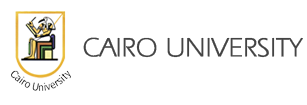 |
|
|
The emergence of Cairo University and its development helped the Egyptian patriotic movement in the early 21st century.
It produced elite of patriotic leaders, pioneers of enlightenment movement and social thought in Egypt, such as Mohamed Abdu, Mustafa Kamel, Mohamed Farid, Qassem Amin, and SaadZaghloul. The emergence of the university achieved a dream that for long time teased the imagination of the people of this country; it is establishing a university that promote the country in all walks of life, and that be beacon for freedom of thought and the scientific basis for the rise of the country and a bridge with sources of modern science, and be the melting pot in which necessary cadres are prepared in all disciplines to share the world in scientific progress.
Since its foundation, the university was keen on keeping Arabic as a teaching language in the university, as well as providing staff members with sound scientific preparation in order for the university to become dispensed with foreign professors, and to provide them with chances to play roles in defining modern knowledge, therefore initiated a private mission of Egyptian students chosen by technical committee through examination, provided that they commit themselves to work in serving the university after obtaining scientific degrees and returning to Egypt.
The role of the university was not confined to serving the surrounding environment, but it was extended to near governorates, thus, the university established a branch in Fayoum, including faculties of Education, Agriculture, Engineering, Social Service, Islamic and Arabic Studies, Tourism and Hotels, Archaeology, and Science. Faculties of Commerce, Law, Veterinary Medicine, Science, Arts, Education, and Pharmacy have been established in branches of Fayoum and BaniSoeif, and the branch of Fayoum became independent in 1981. The process of building and development is still in its way, in order for Cairo University to remain as it always was an embodiment of pride of every Egyptian.
|